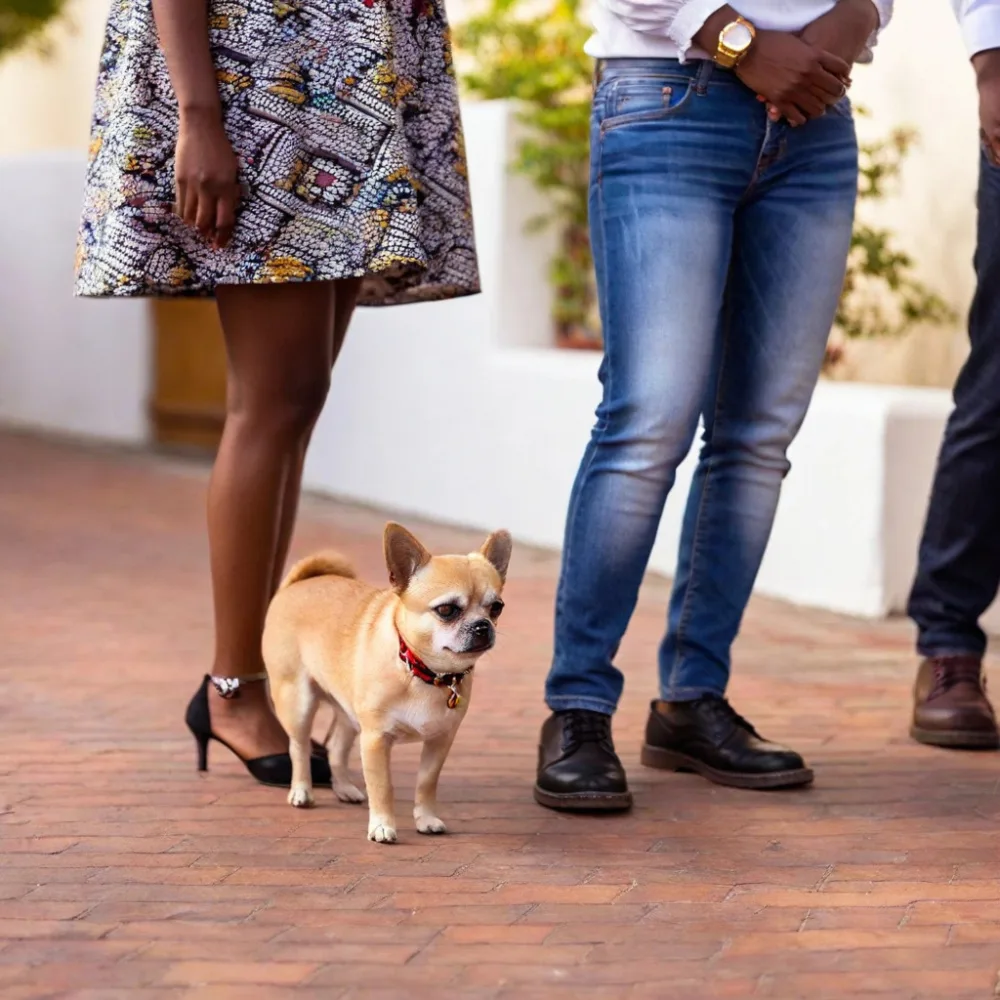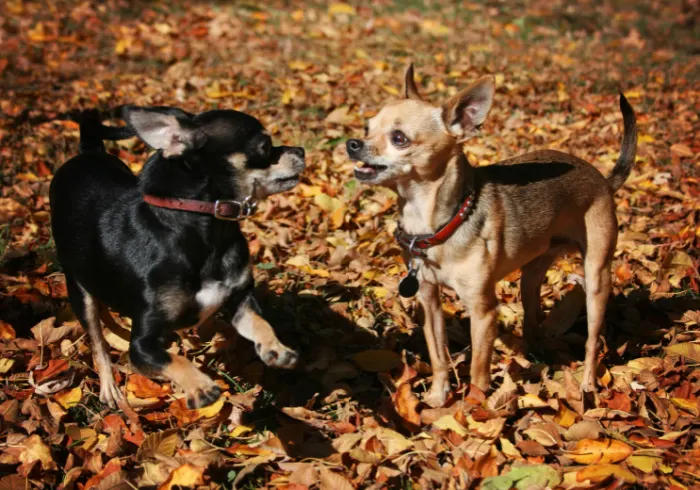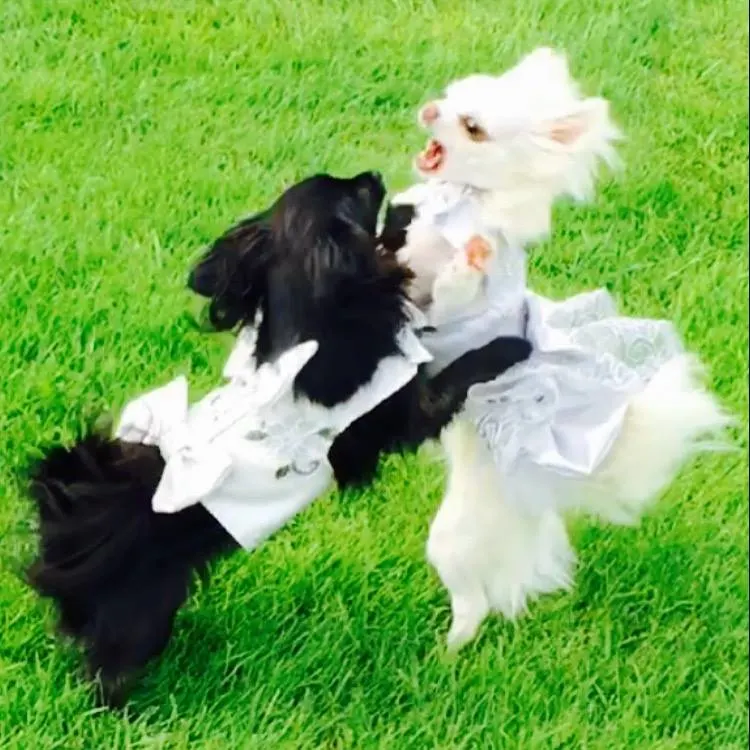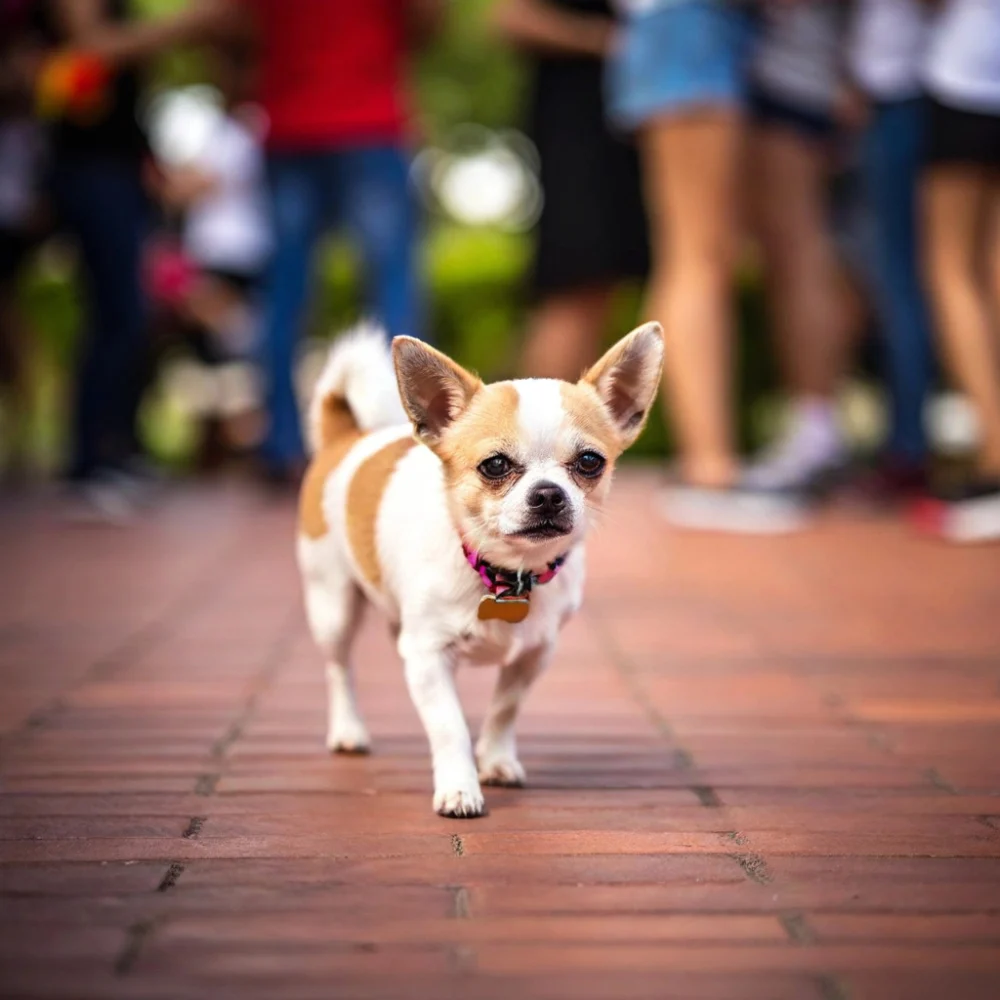Chihuahuas might be small, but their personalities are anything but! As micro-managers of the canine world, these tiny pups need to be socialized well to live harmoniously.
Are you ready to discover the professional secrets that will transform your Chihuahua into the most sociable dog on the block? Buckle up because we’re about to dive into a world of tiny tails and wagging social lives that you won’t want to miss!
While many assume these tiny dogs are naturally anxious or aggressive, the reality might surprise you. In fact, with the right techniques, your Chihuahua can be the life of the party! Keep reading to learn the tried-and-true methods savvy Chihuahua owners know by heart.
Understanding Chihuahua Behavior
Chihuahua owners often find themselves puzzled by their pet’s unique behavior. These small dogs can be both fiercely loyal and playfully mischievous.
So, what’s the deal? Chihuahuas have a strong pack mentality, which can lead to protective behavior. However, this can also make them easily trainable and eager to please.
Understanding their behavior goes a long way in shaping their social skills. Recognizing that their bark is often bigger than their bite can help you guide their interactions. With the right training, a Chihuahua’s natural energy can be channeled into positive social behavior.
Early Socialization is Key
Much like humans, Chihuahuas benefit tremendously from early socialization. From a young age, introducing them to different faces, places, and furry friends can set the tone for their future behavior. The earlier you start, the better!
Imagine a world where your Chihuahua is confident and calm in all social situations. That dream can become a reality with consistent exposure to various environments and individuals. Starting at home with family members and then slowly moving to busier places can help ease them into socialization.
But what if you have an adult Chihuahua that needs to be socialized/ Well check out this article on socializing adult Chihuahuas.
Making Time for Meet and Greets
Chihuahuas have the potential to be friendly dogs with the right amount—and type—of exposure. Regular playdates with other small dogs can be a game-changer. Not only does this provide physical activity, but it also offers a safe space for social practice.
Seek out pet-friendly community events or organize neighborhood gatherings where your Chihuahua can meet new friends. These interactions might be a little bumpy at first, but patience and consistency are key. Remember, the goal is not just to ‘meet,’ but to play and engage positively.
Training Techniques Every Owner Should Know
It’s not just about social exposure; structured training techniques play a vital role too. Basic commands like ‘sit,’ ‘stay,’ and ‘come’ can be incredibly beneficial during social interactions. These commands help in controlling their excitement when meeting new dogs or people.
Remember, positive reinforcement is your best friend. Treats, praise, and playtime as rewards after following commands can solidify good behavior. Expert dog trainers often emphasize consistency and patience, especially with independent breeds like Chihuahuas.
The Importance of Routine and Familiarity
Chihuahuas thrive on routine. Having predictable schedules can ease anxiety and promote a sense of security. It’s this repetition that helps them process and learn the social behaviors expected of them.
Don’t underestimate the power of familiar environments. New places can be overwhelming, so incorporating familiar scents or objects can comfort your Chihuahua during social outings. This could be as simple as their favorite toy or blanket, which serves as an anchor to home.
Finding the Right Social Opportunities
Not all social settings will suit a Chihuahua, and that’s perfectly okay. The goal is to find the right opportunities that match their temperament. Dog parks, for instance, can sometimes be too much if they’re crowded with larger, more boisterous dogs. Some dog parks do have areas just for small dogs, so see if your area has that at your local dog park.
Consider smaller, controlled environments such as pet-friendly cafes or specialized small-dog meetups. These situations can offer the right balance of stimulation and safety. Keeping experiences positive is paramount in building confidence.
Expert pet organizers often suggest starting small and observing your pet’s reactions closely. If something doesn’t feel right, don’t hesitate to leave or alter the game plan.
Socializing with Humans: The What and How
It’s not just about other dogs; human interaction is equally essential. For Chihuahuas, connecting with people is part of their social demeanor. Introducing them to a variety of people helps in normalizing different voices, gestures, and smells.
Start with the basics: family members and friends. Gradually, increase the diversity of interactions to include strangers in controlled settings. Reward your Chihuahua for calm and patient behavior with humans.
Don’t forget to encourage gentle handling. Teach everyone—especially children—how to correctly interact with your Chihuahua to prevent fear responses. This builds trust and understanding on both ends.
Reading Your Chihuahua’s Social Cues
One secret to successful socialization is understanding your Chihuahua’s body language. This helps anticipate any discomfort and avoid negative encounters. Watch for signals like tail wagging, barking, and ear movements.
A wagging tail can indicate happiness, but also anxiety if it’s quick and low. If your Chihuahua starts barking excessively, it might be expressing discomfort. Study these cues carefully to better manage their social experiences.
Handling Setbacks with Laughter and Patience
Not all socialization experiences will go smoothly, and that’s perfectly normal. Sometimes, playful barks turn into minor spats, or new people can scare them. These setbacks are all part of the journey.
Remember to maintain a sense of humor. Laugh off the minor mishaps and focus on the improvements. Every small step forward is a victory worth celebrating. Patience and consistency are key!
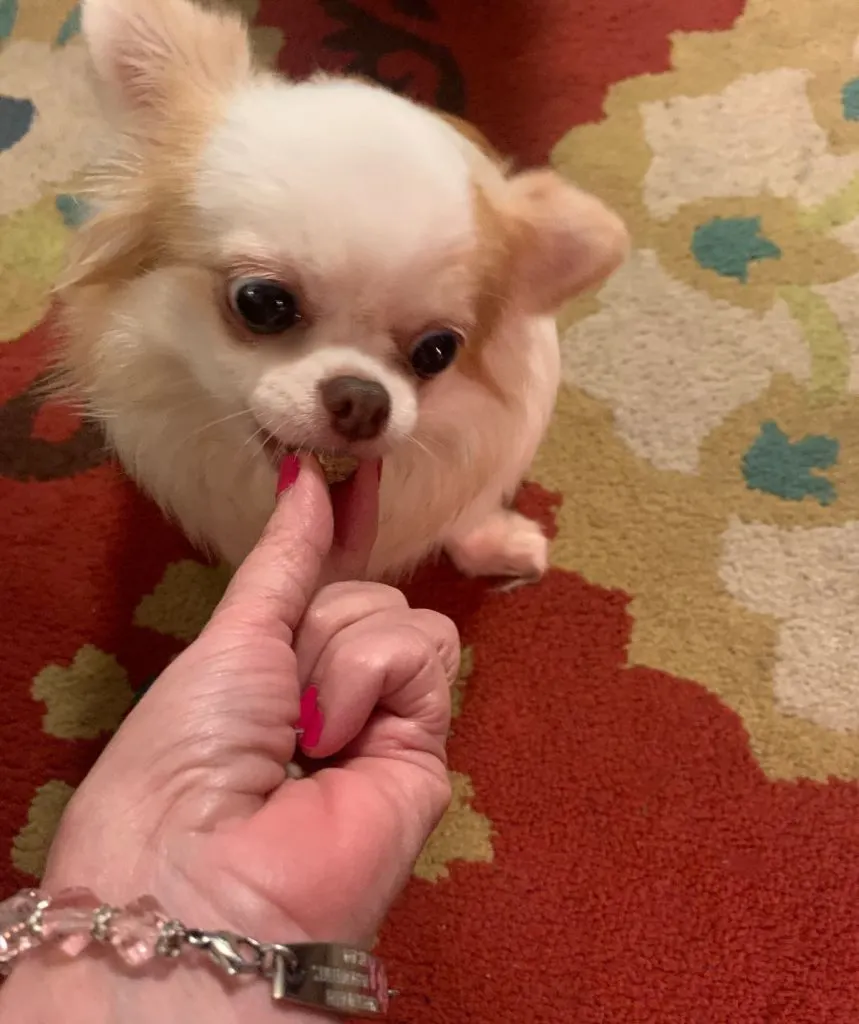
The Role of Toys and Treats in Socialization
Toys and treats play an instrumental role in making social activities engaging and rewarding. Always bring your pet’s favorite toy to divert attention or to act as an icebreaker among other dogs.
Rewarding with treats during interactions reinforces good behavior. Ensure treats are used to mark moments of calm or positive engagement, not as a distraction from problematic behavior.
Creating a Safe Socialization Environment at Home
The home can be a perfect environment to host social experiences. Invite fellow small dog owners and their dogs over for structured playdates. This familiar space reduces anxiety and allows your pet to shine.
Offer areas for exploration and games, alongside water bowls and resting zones. Hosting at home lets you control the setting, ensuring it remains peaceful and positive throughout.
Be aware, though, that some dogs do better in neutral situations.
Why Professional Training Programs May Help
Sometimes, a little professional guidance can go a long way. Training programs designed for socialization can expose your Chihuahua to a myriad of experiences in a controlled setting.
Trainers often leverage specific routines and exercises tailored to bring out the best in small breeds. If you feel stuck, don’t hesitate to explore these programs—they provide structured support and insights that can be incredibly beneficial.
Check local pet training centers for programs specializing in small dog breeds, or check online reviews for recommendations on experienced trainers in your area. You can also ask your vet if they know of any good trainers.
Adjusting Socialization for Different Life Stages
As Chihuahuas age, their social needs and capabilities evolve. Puppies thrive on constant stimulation, while older Chihuahuas may prefer calm and predictable interactions. Knowing how to adjust socialization practices over time is crucial.
For seniors, focus on maintaining familiar contacts and gentle outings. This ensures they remain engaged without feeling overwhelmed. Always cater activities to their physical ability and energy levels, ensuring their comfort and enjoyment.
Summing Up the Chihuahuas’ Socialization Journey
Your Chihuahua’s socialization journey is as unique as its personality. Everything from early exposure, understanding cues, and learning through play creates a well-rounded and happy pet. Remember, every moment is a learning opportunity.
Summing it up, the process requires patience, a dash of humor, and lots of love. Are you ready to embark on this adventure and witness your little companion evolve into a social butterfly?
If you have any tips on how you socialized your Chihuahua, please share them with us in the comments!
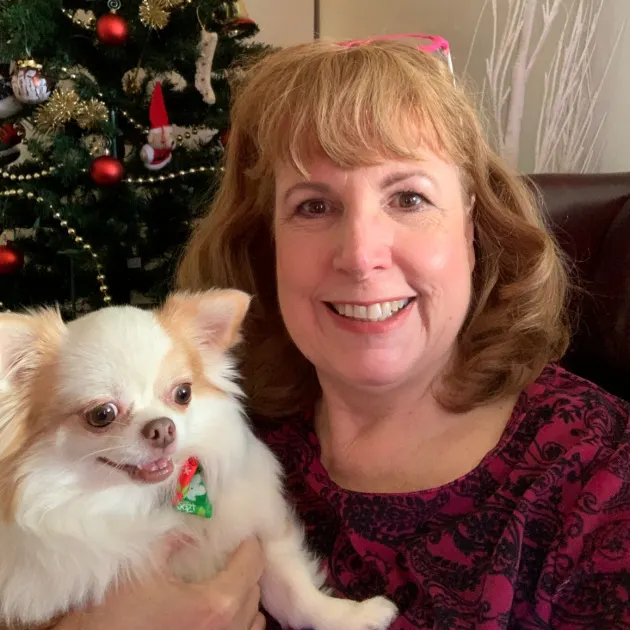
Cathy Bendzunas
Pet Blogger

